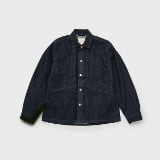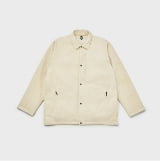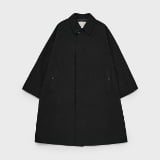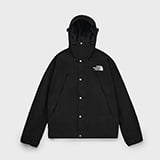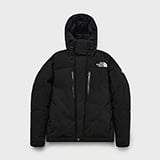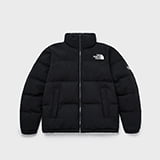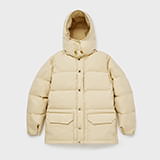Formafantasma is a duo of designers based in Milan. Simone Farresin and Andrea Trimarchi’s practice is motivated by questions like: "What if we could no longer extract petroleum? What if the current manufacturing resources were not available anymore?”
Among their creations, a vase made of "plastic from the future," a combination of plant sap and other materials; vessels made of agricultural waste mixed with flour that can be returned to the soil; mirrors and glass made from lava…
Their design is not necessarily practical or functional. Rather, it encourages our imagination to change our lifestyles, by questioning the meaning and origins of materials. Formafantasma believes that tradition, craftsmanship, and local handicrafts are essential to create such products. Naturally, their practice resonates with the next-generation material Brewed Protein™, developed by Goldwin in collaboration with Spiber, to replace animal-derived, plant-derived, and synthetic materials. The garments made with this new material are not just protection from the weather, injuries, and dirt. Those garments open our minds to new possibilities.
From the moment you wake up to the moment you arrive at your studio, how do you spend your time?
Andrea Well, I would say it's quite a rush in the morning. I usually wake up around 7:15AM, take my greyhound dog Terra for a walk and go out for a light breakfast. Then I put Terra on my bike for a ride to the studio through the park and arrive here at 9AM.
Simone I like to start the day walking. The 45-minute walk from my house to the studio is along the canal, so there aren't any cars and it's really pleasant. It's the time I feel most free.
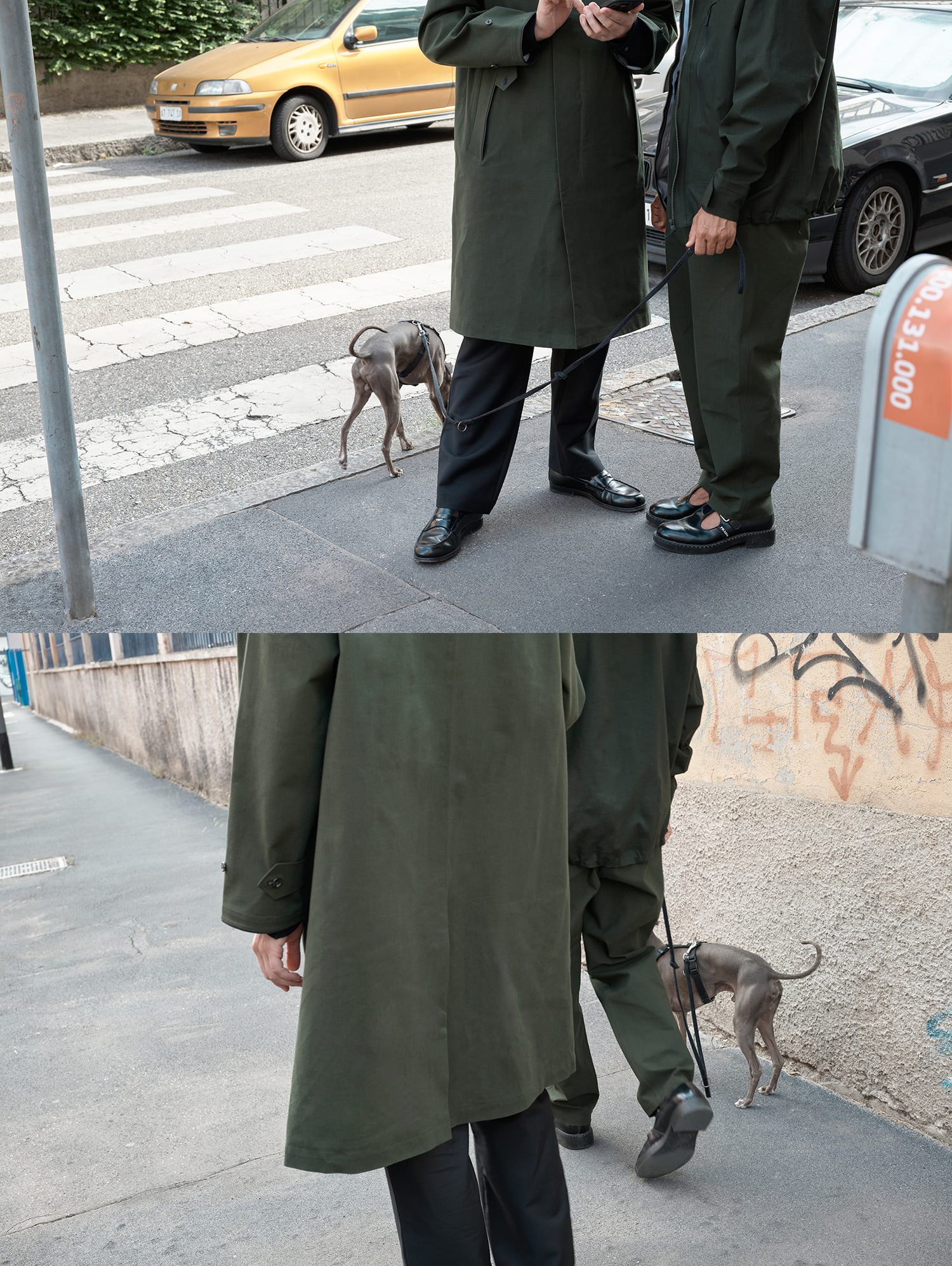
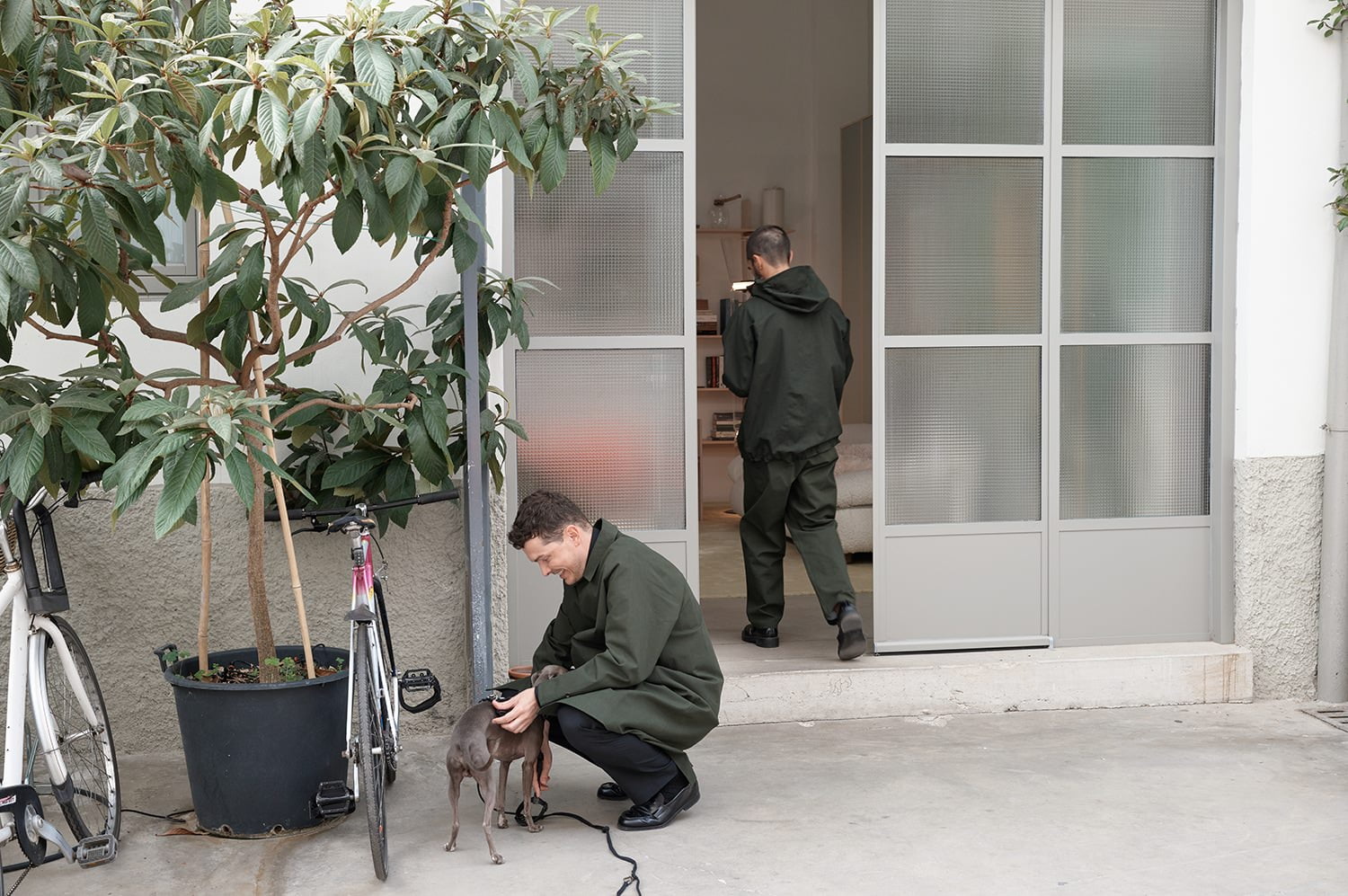
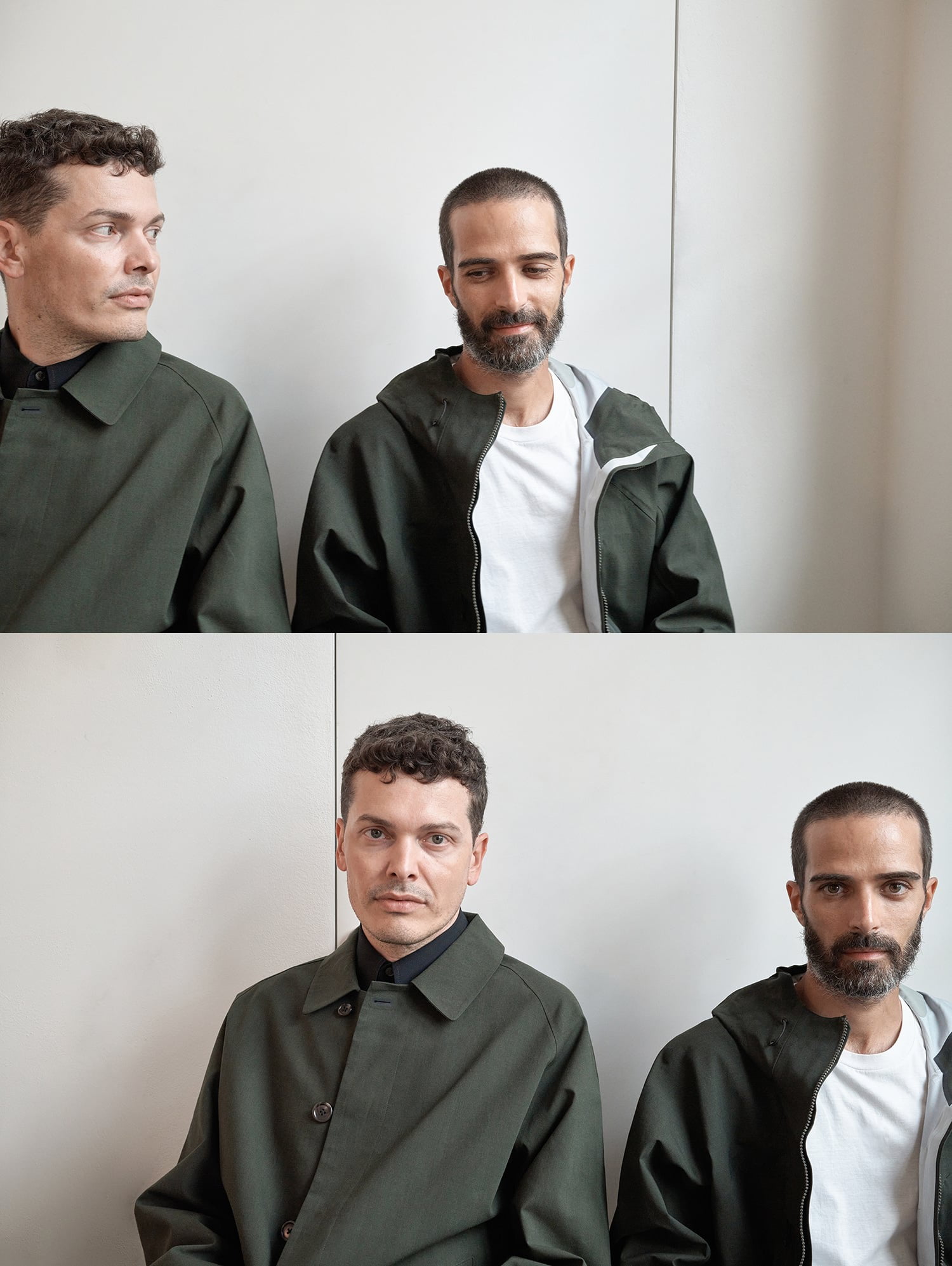
We got here a bit early for this interview, and you guys were still having lunch. You have all you need here: plates, slicer in the kitchen... This place must feel like home!
Andrea Before we moved to Milan, we had a studio in Amsterdam. Just like in Amsterdam, we want our studio in Milan to be a space that feels like home. A home for everyone. We use plates and cutlery when we have meals, and water pitchers and glasses when friends and clients visit the studio. I also use the oven a lot, but unfortunately the slicer doesn't get much use…
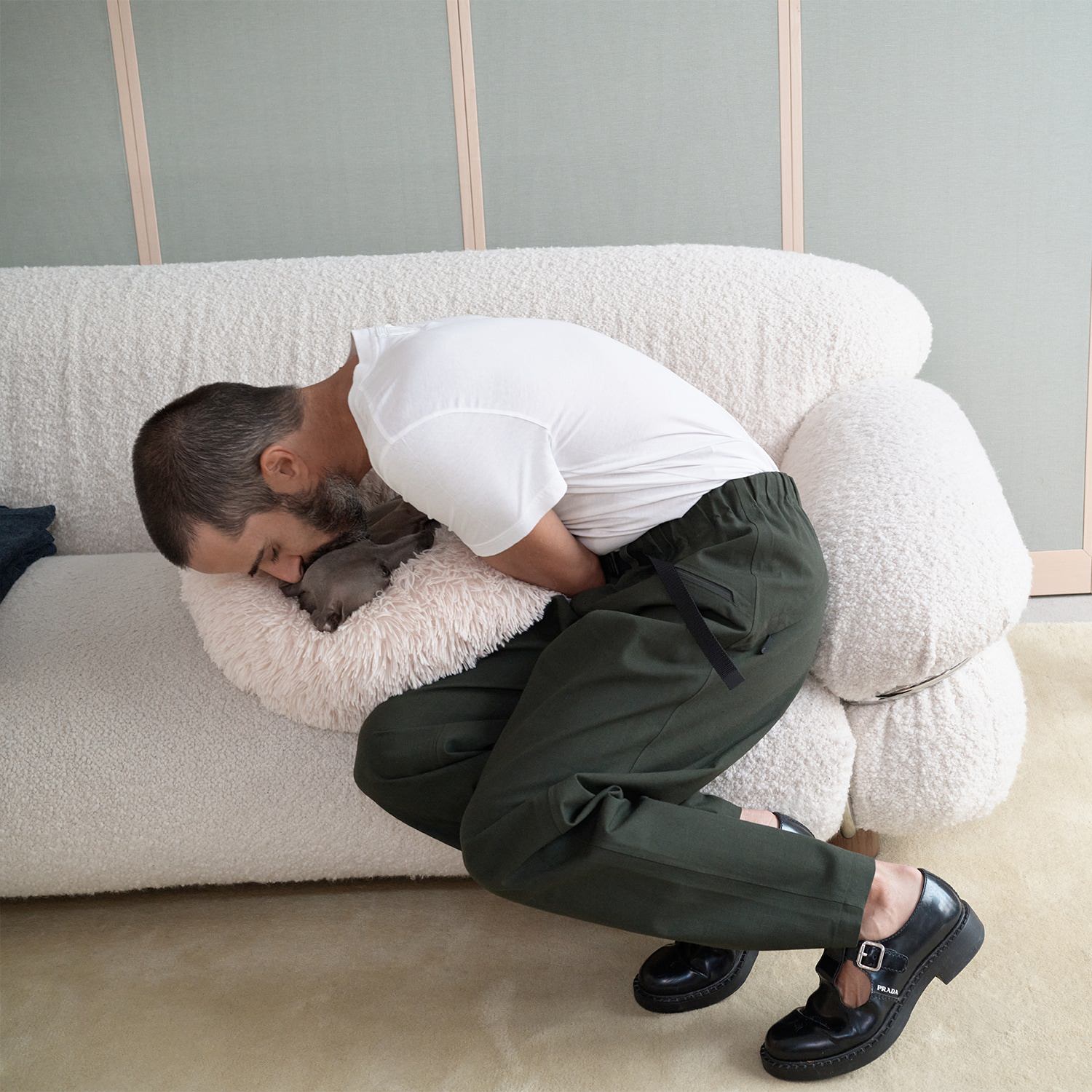
It's a cozy space with a lot of greenery.
Andrea Most of the plants were brought from our studio in Amsterdam. Maybe because the ceilings are higher here, they are growing very fast.
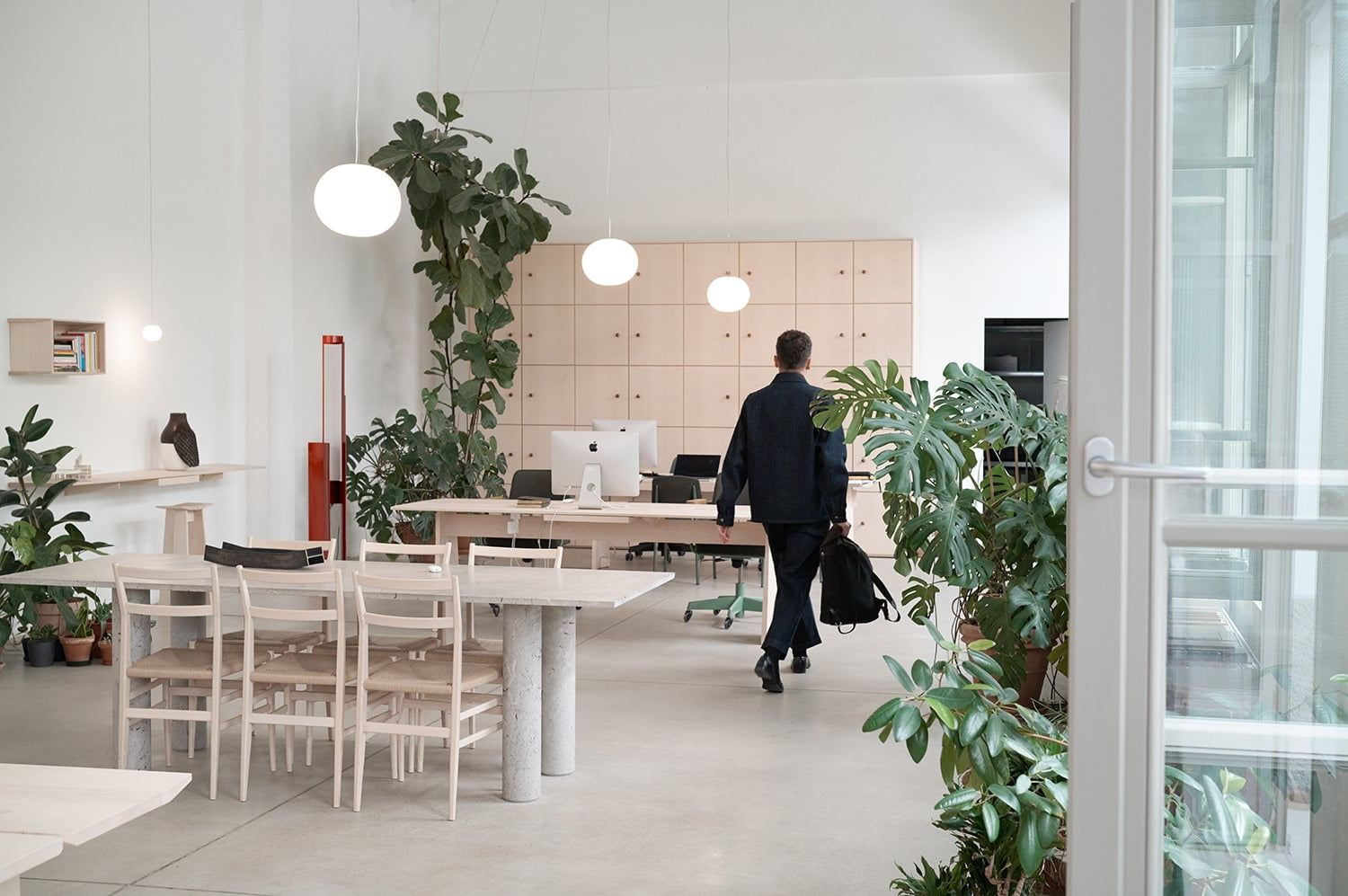
What was this place originally?
Andrea It used to be a printing factory. The northwestern part of Milan, where this studio is located, used to be an industrial area with many factories, but many of them went bankrupt after COVID. Recently, design companies and artists have established their studios in this area, and it is becoming lively again.
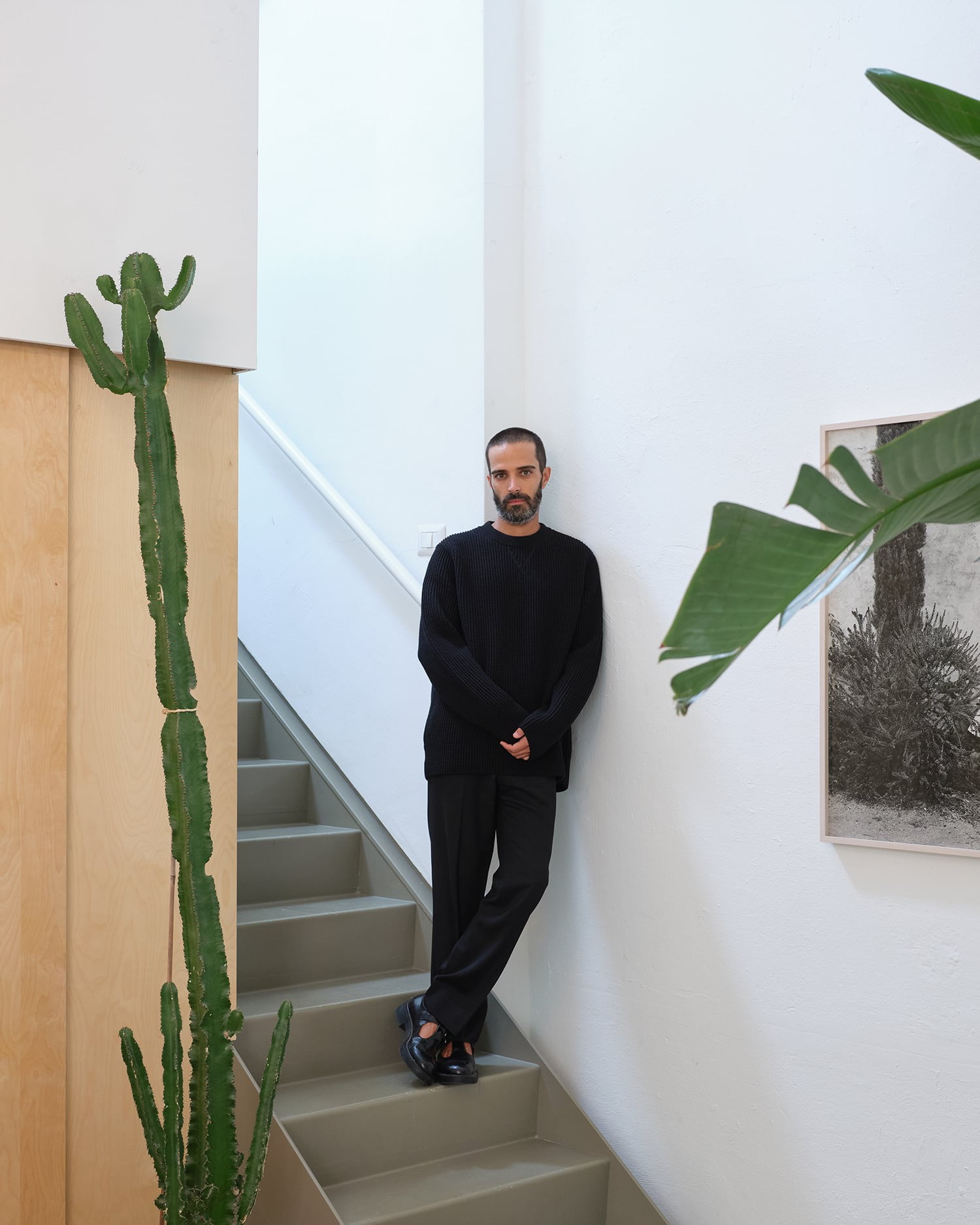
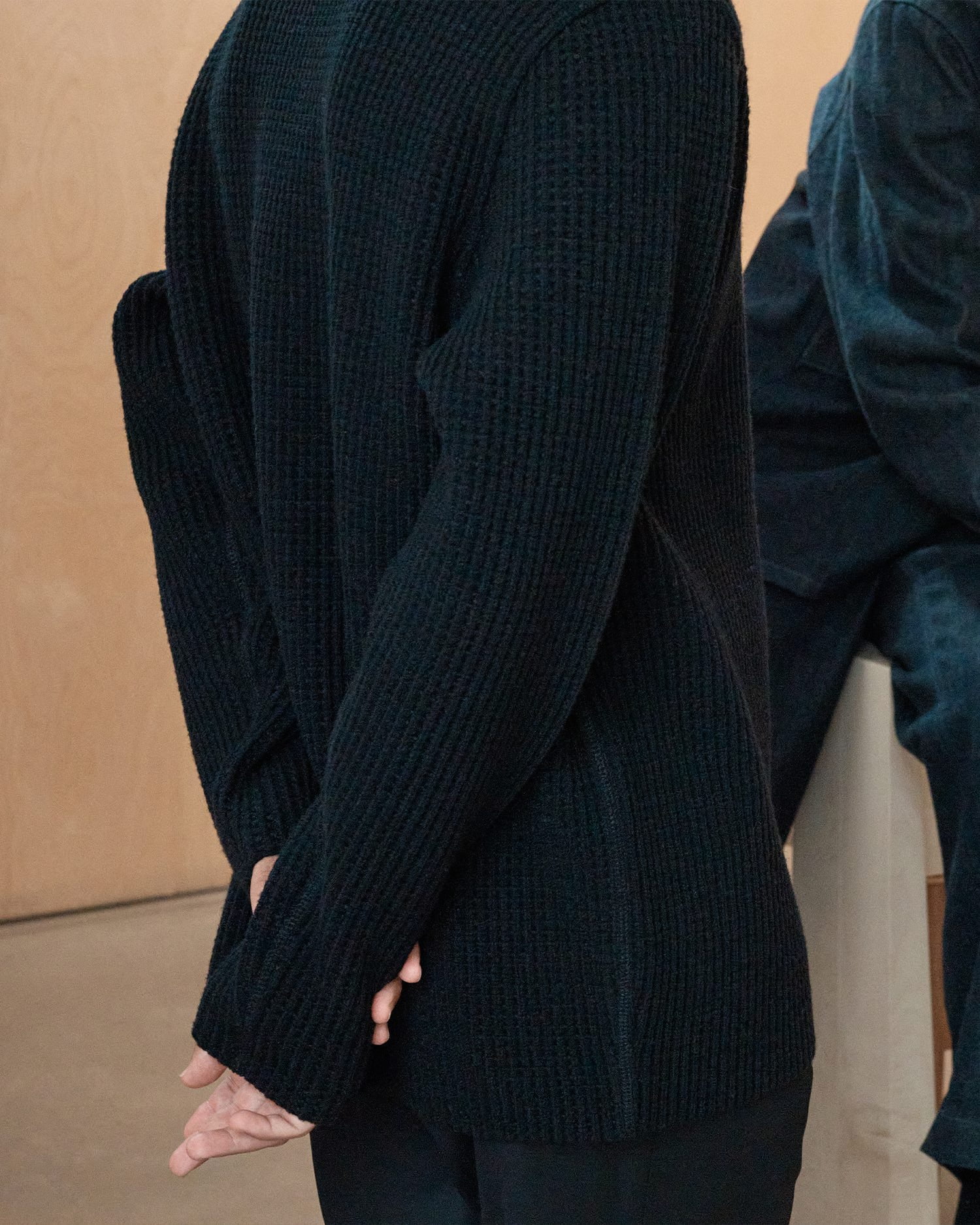
How do you choose the things you use on a daily basis?
Simone When choosing daily necessities, we have three main criteria. The first criteria is obviously functionality. The second one is design. Our definition of good design is design that does not make a statement. The third criteria is the fact that it's handmade, and this is actually in opposition with the two previous criteria: handmade design isn't functional, anonymous or universal. But it has a tactile quality and requires craftsmanship. And it's what I like best.
Andrea When acquiring something new, whether for home or the office, I think about the durability of the object. Durability means quality, but it also implies that its design won't feel too dated over the years.
Your "Autarchy" series of vessels was made of flour mixed with agricultural waste. It was not fired like usual ceramics and your production methods seem very far from our mass consumption society. I feel like your work offers a different point of view on things around us. Not only a practical view, but an invitation to reflect on things and imagine their conception, their story.
Simone When designing a space or a product, it is very important to work with imagination. Anyone would agree that living in a "sci-fi world" surrounded only by practical things would be quite boring. When looking at things around us, we can choose to follow stereotypes, or we can choose to look at them carefully. We can appreciate how they look, imagine how they were made as well as the thoughts and ideas of their creators. When you think this way, things have the power to greatly influence our lifestyles.
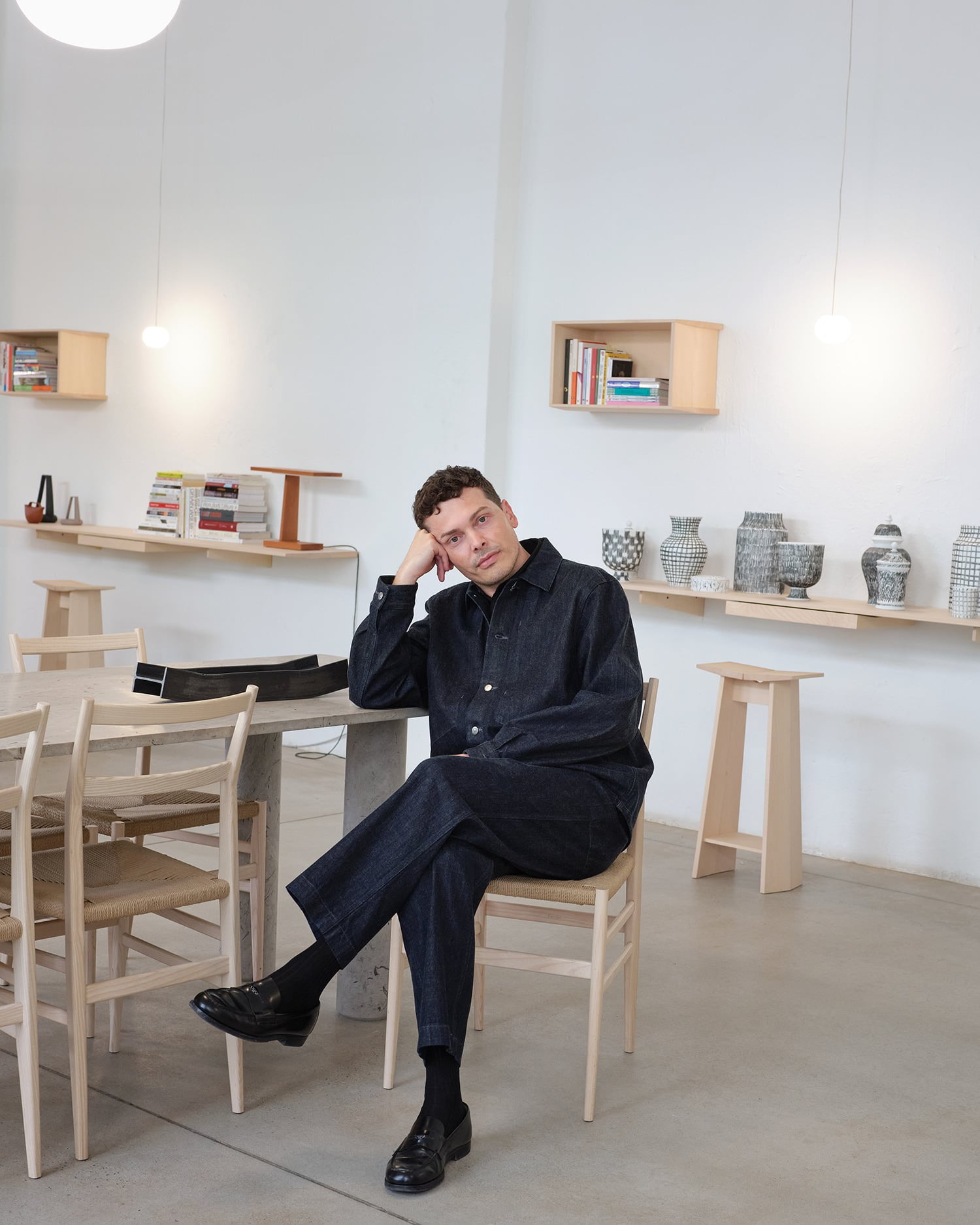
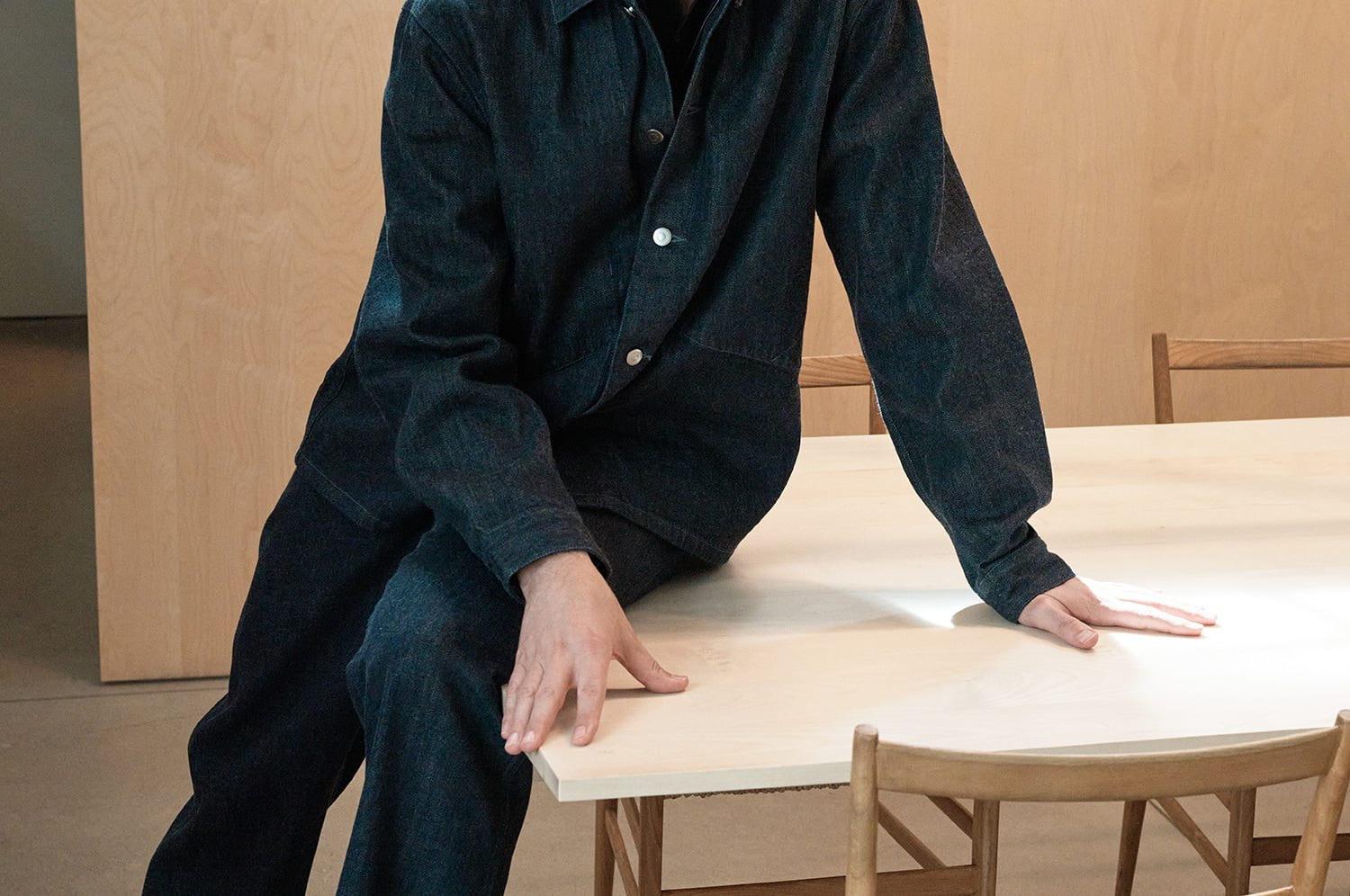
Do you always follow this state of mind?
Simone Sometimes it works, and sometimes it doesn't work at all. But we believe that imagination is the greatest resource of human beings. We are in a position to use our imagination to break down stereotypes in space and graphic design. Imagination can be very useful when it comes to environmental issues. I think Brewed Protein™ fiber is a good example of something born from imagination.
Andrea This doesn't only apply to Goldwin and Spiber. If all of us use our imagination, we can share various solutions, various ways of living.
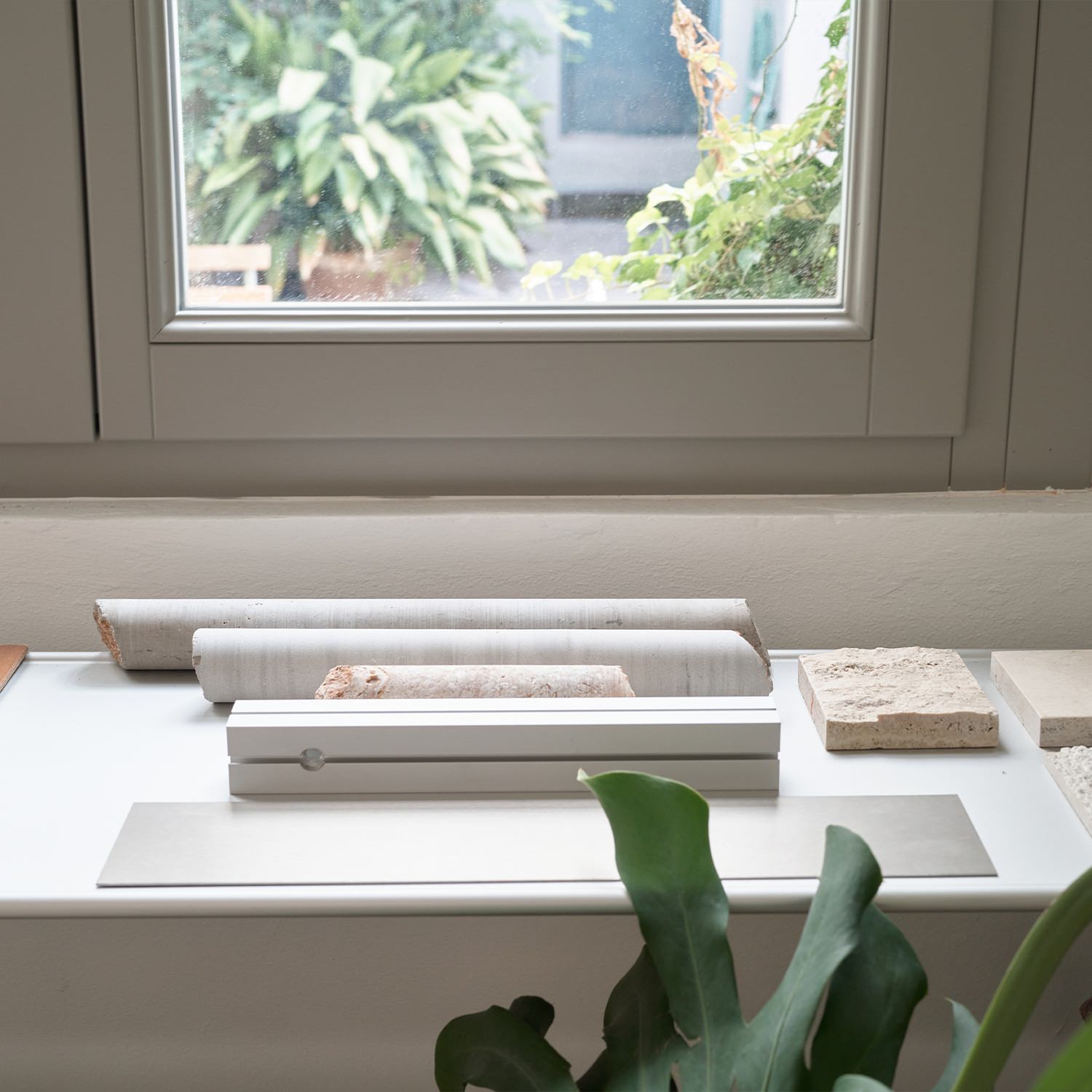
It is easy to create things within established systems and infrastructures. However, you dare to approach design with a process that seems to take a lot of energy and time.
Andrea I was just talking with Simone about this over breakfast this morning.
Simone Why do we put so much time and energy into our work? I honestly don't know why. But we want everything we put out into the world to be "meaningful." To do so, of course, requires time, help from many people, and an audience that understands these values. All of us in this studio think this way, and it is the only way we can do it. But don't get me wrong, I also like to waste time every now and then. You can't be thinking about the meaning of things all the time. There are lighter moments in life, and those moments are important too.
What is the most meaningless thing you have ever bought?
Simone Things that are nice to buy but gradually become meaningless. For example, egg chocolates. My parents used to buy them for me, so sometimes I feel the urge to buy them. I haven't done it recently, because I know that the toy from the egg chocolate will be forgotten on the table very quickly. But I guess the moment I open it, and the few minutes I have that toy in my hands remind me of my childhood. So I guess it is, somehow, a meaningful purchase. What I'm trying to say is that perhaps there is no such thing as meaningless items, and it depends on how you feel about them.
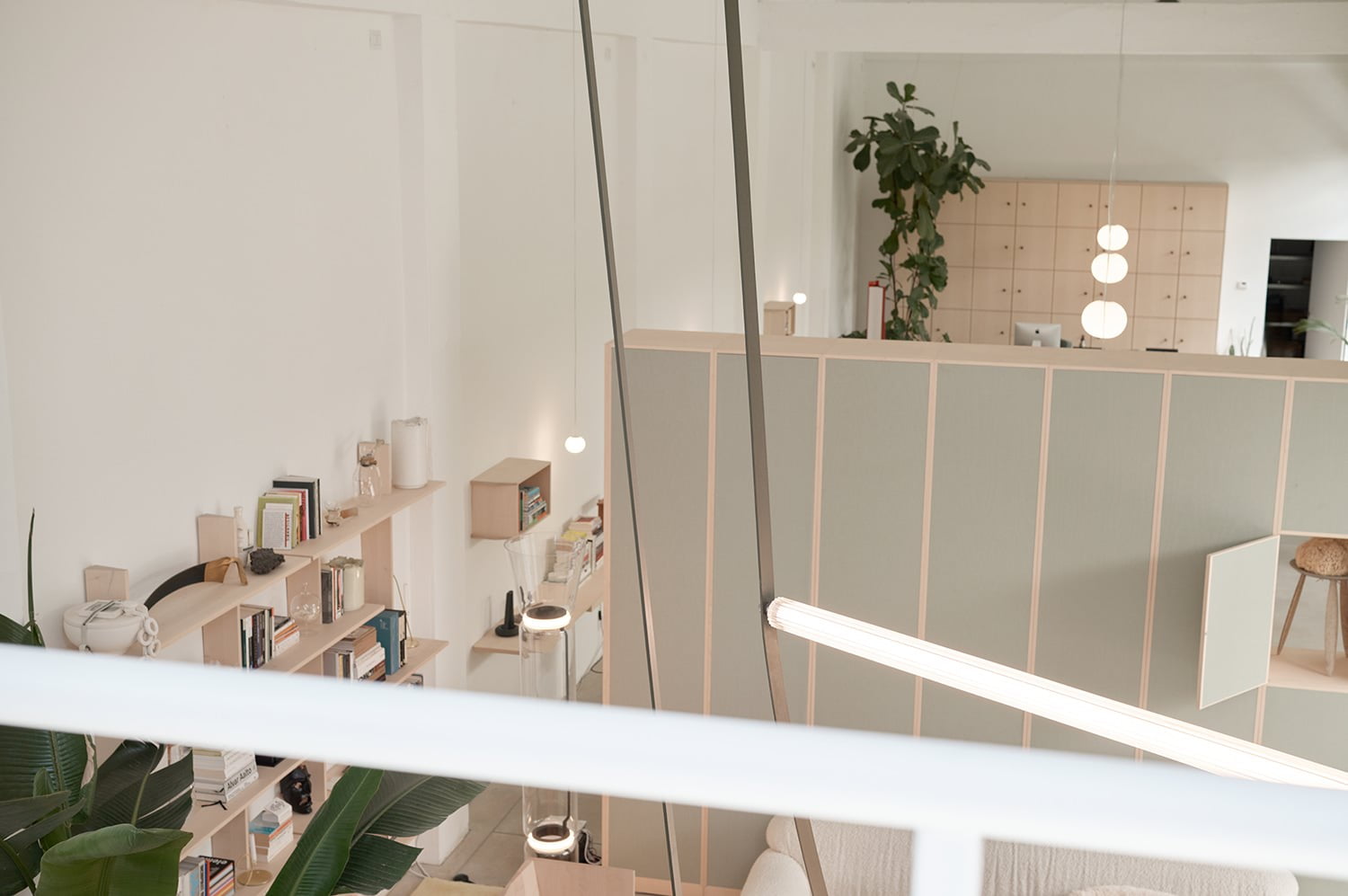
Buying something that has no function may feel like luxury.
Andrea Luxury is a difficult concept. But for us, luxury is not defined as something expensive. If I had to define it, I would say that it is something or a space that took a lot of time and effort to be made. And as a result, it is expensive.
Simone Rather than thinking about what luxury is, we tend to think about what luxurious time and things can bring us. The satisfaction of creating luxury items and the ability of using them for a long time make the life of both their creators and users better. Perhaps our definition of luxury is something that brings a new way of thinking to everyone.

The items you are wearing now took about 10 years to be produced with Brewed Protein™ fibers. How do those items make you feel?
Simone The touch of the material is very nice. It feels natural, in a good way. I can imagine it as something I would wear on a daily basis, rather than something I would wear on a special occasion. In other words, a sense of intimacy.
Andrea I personally like clothes that have elements of sportswear or workwear. When wearing those items, I notice how softly knitted the fabric is, yet how firm it is on the outdoor jacket. It feels very good to the senses.
What do you imagine when you hear the word Regenerative?
Simone I like the word Regenerative very much. Because it is a word full of imagination. We have recently been researching on regenerative agriculture. It is a type of agriculture that aims to restore the natural environment by improving the soil, rather than just keeping it healthy. The beautiful thing about this concept is that the idea of restoration is practiced while improving not only ourselves, but other living things and beings.
Andrea I guess it's about thinking that nothing is useless: everything can be transformed. Transformation, mutation... This word has a wonderful concept and image, and we must cherish it and not abuse it.
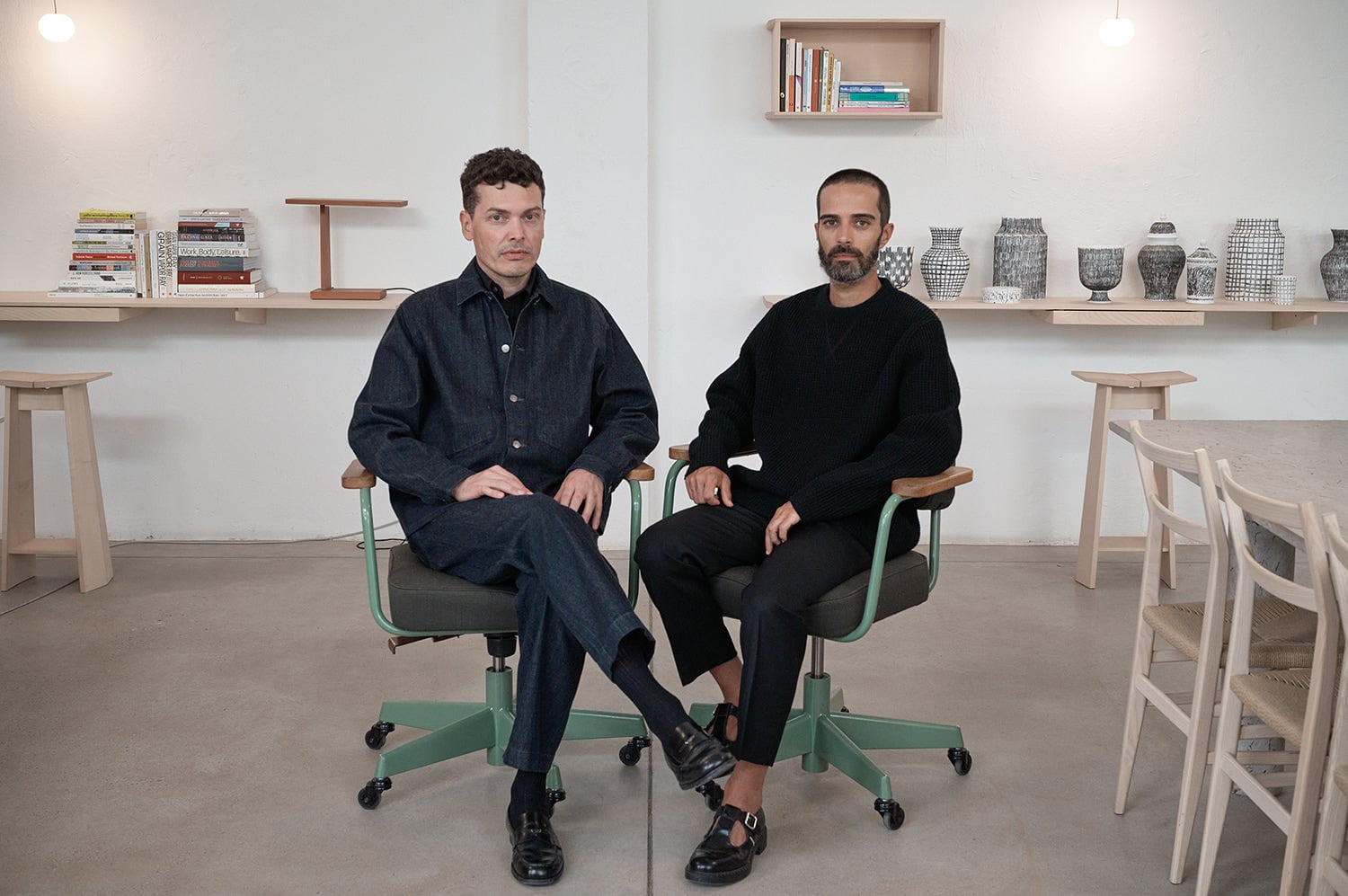
Research-based design studio investigating the ecological, historical, political and social forces shaping the discipline of design today. Whether designing for a client or developing self-initiated projects, the studio applies the same rigorous attention to context, processes and details. Formafantasma’s analytical nature translates in meticulous visual outcomes, products and strategies.

